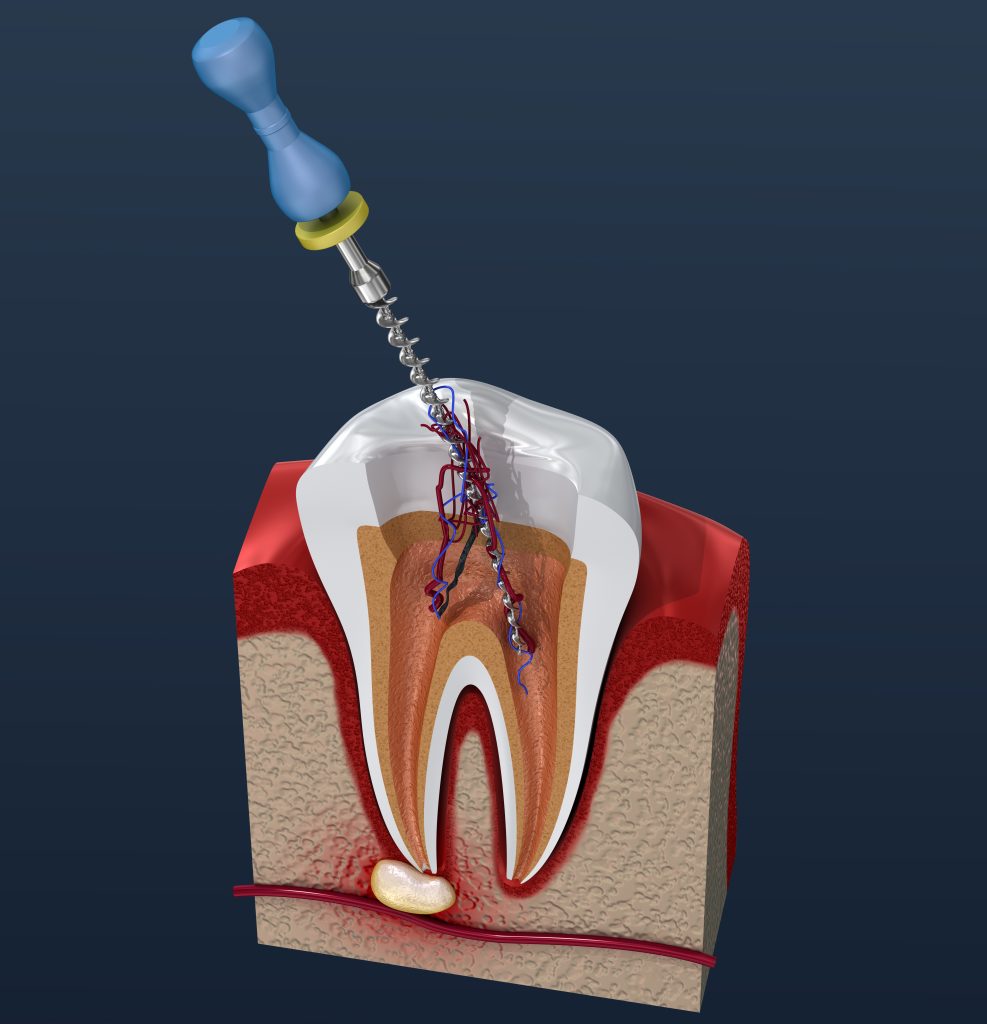A root canal is one of the most common dental procedures performed, with well over 14 million being completed every year. This simple treatment can save your natural teeth and prevent the need of dental implants or bridges.
At the center of your tooth is something called “pulp.” The pulp is a collection of blood vessels that helps to build the surrounding tooth. Infection of the pulp can be caused by trauma to the tooth, deep tooth decay, cracks, chips, or repeated dental procedures. Symptoms of the infection can be identified as visible injury or swelling of the tooth, sensitivity to temperature or severe pain in the tooth and gums.







